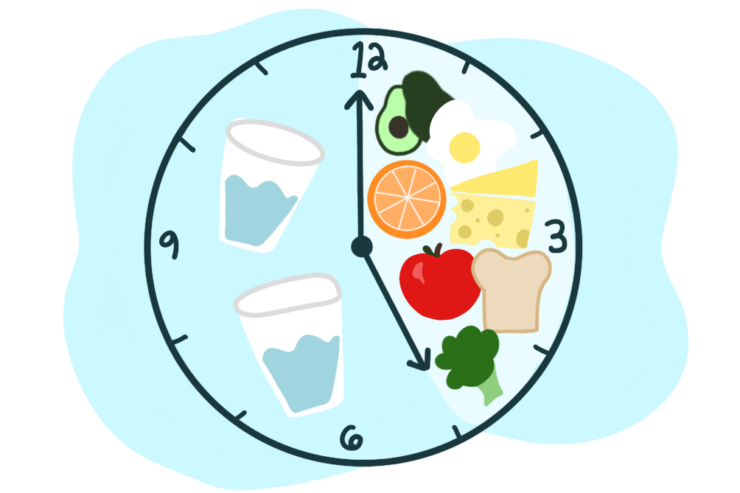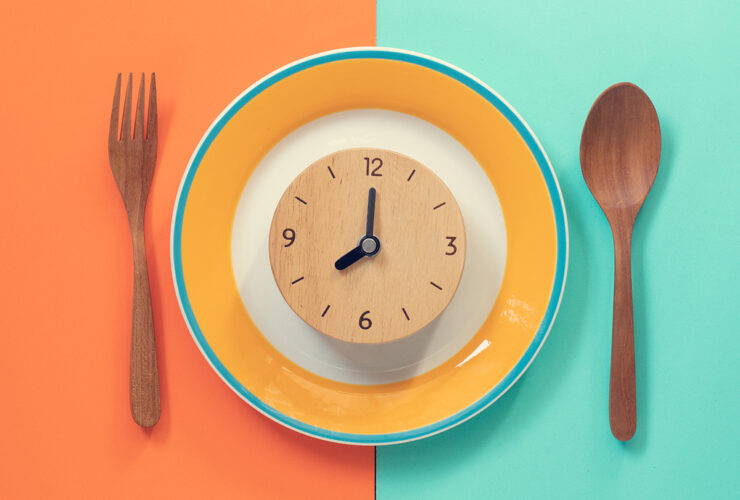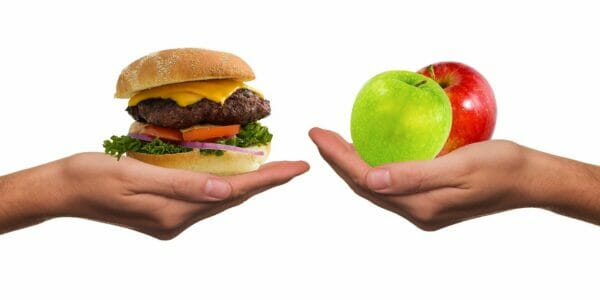Table of Contents
Intermittent fasting does not exactly specify what food to eat and what not to eat but if you are trying to lose some weight during this period and stay within the fasting window.
You will need to consume minimally processed foods and it is quite beneficial when you focus on healthful eating and limit the intake of sugar however you can eat whatever you want after the fasting window depending on what you are trying to achieve with intermittent fasting.
During the fasting periods, you either eat very little, nothing or stick to staying hydrated with liquids alone but no solid foods are permitted if you are trying to lose weight.
What to eat during intermittent fasting can be confusing and if you are trying to get the most out of your weight loss journey then your intermittent fasting food list needs to be filled with nutritious meals that won’t cause you to gain weight instead of losing it.
Weight loss is the most common reason for intermittent fasting and by consuming it right meals with few calorie count, it can facilitate weight loss and help stay healthy, here are foods to eat during intermittent fasting.

Intermittent Fasting: What Should I Eat?
Anyone attempting to lose weight with intermittent fasting has to go for nutrient-dense foods that will keep you healthy and intermittent fasting is not a diet plan rather an eating pattern and if there are no dietary guidelines and if you are getting a false impression that you can eat anything, this will only cause you to gain excess weight.
Eating during intermittent fasting is more about being healthy than rapidly losing your weight, here are high fibre foods that will keep you satiated during your intermittent fasting.
- Water
- Fish
- Avocado
- Cruciferous vegetables
- Eggs
- Berries
- Quinoa
- Nuts
- Beans and legumes
- Beetroots
- Probiotics
- Tomatoes
- Lettuce
Can I eat rice during intermittent fasting?
Yes, rice is a healthy source of food during your intermittent fasting eating phase however we recommend eating brown rice instead of white rice as it is more nutritious and contains fewer calories.
Eating during intermittent fasting does not have to be complicated and a plate of rice with some roasted salmon will do just fine, you will feel full fast and get the nourishment you need however it is important to eat rice in moderation as it contains a certain amount of calories that can lead to weight gain if consumed in excess during intermittent fasting.
What not to eat after fasting?
What you eat after breaking your fast is important if you are trying to burn some fats and some ideal foods to eat to stay healthy are vitamin-rich juices, fermented foods like unsweetened yoghurt and kefir, healthy fats like avocado, eggs and coconut oil, leafy greens, potatoes and veggies.
Eating unhealthy and highly processed foods will only cause you to gain weight and undo whatever health benefits you have derived from fasting hence here are a list of foods you should avoid eating after fasting includes:
- Cookies
- Candy
- Cakes
- Barbecue sauce and ketchup
- Granola and sugary cereals
- Fruit juice
- Chips
- Microwave popcorn

Is oatmeal good for intermittent fasting?
Yes, oatmeal can be great for intermittent fasting provided it is made with little or no sugar in it as oatmeal contains 35 calories and sugar in it will make it hard to get the benefits of intermittent fasting and you can gain back the fat you are trying to lose instead.
You can eat oatmeal with intermittent fasting but to get the benefits, we recommend trying your oatmeal with other healthy meals like apple, dried cranberry or a touch of maple syrup will keep you satiated for long.
Can I eat bread in intermittent fasting?
No, you shouldn’t consume bread in intermittent fasting as this can be hard on the stomach and difficult to digest although a minimal amount of bread might not affect your fasting to keep a healthy food diet during intermittent fasting, yous should avoid eating whole grain bread.
Final Thoughts
What you eat during intermittent fasting should be put into consideration if you want to improve your health and lose weight and there are different forms of intermittent fasting for everyone and you must apply nutritional principles to any intermittent fasting method you adopt.
Breaking your intermittent fasting with the wrong food can upset your stomach and cause you to be bloated or uncomfortable hence why we have listed some of the foods to avoid above.

